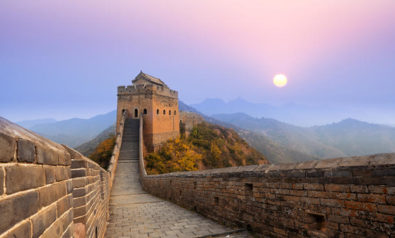
A new leadership has taken charge in China; its decisions are going to determine the fate of the Middle Kingdom and the rest of the world.
Background
The Chinese Communist Party (CPC) has just concluded its once-in-a decade congress. Delegates, no less than 2270 of them, met in the Great Hall of the People in Beijing to nominate the Middle Kingdom’s new leadership.
The official line is that the party’s Central Committee has elected the members of the Politburo and the Standing Committee. The former is a group of 25 people who oversee the party while the latter is China’s most powerful decision making body. The truth about the congress is that there was no election. Outgoing members and party elders selected the new leadership in back room deals many months ago.
Xi Jinping succeeds Hu Jintao as General Secretary of the Communist Party, Chairman of the CPC Central Military Commission and President of China in March 2013. Xi is the son of a former top party leader and supposed to be rather conservative.The People’s Republic of China’s (PRC) next Prime Minister is Li Keqiang who will assume power in March 2013, too. He is a lawyer and an economist who once did manual labor before beginning his meteoric rise to power.
The new Chinese leadership is divided into two factions. Gone are the days when a Mao or Deng, could impose his will on the nation. Decisions are now made after much negotiation and after arriving at some sort of consensus. One faction, the so called “Princelings”, comprises the children of former party bigwigs such as the head of party discipline, Wang Qishan. The second faction consists of members like Li Keqiang, who worked their way up to the top. Continuing China’s success story will require serious reforms that include the limiting privileges of the ruling elite. The biggest challenge that Xi and Li face is convincing their own party to embrace political reform and give up some of its powers.
Why is the change in leadership relevant?
China is the world’s second largest economy, the biggest exporter, the largest holder of foreign exchange reserves and the biggest recipient of foreign direct investment. Its economy proved resilient in the recent global financial crisis. China is the world’s latest growth engine and has formed the backbone of the global economic upswing.
The world’s most populous nation is now a major military power. It has the largest army in the world. Furthermore, the country’s military expenditure has increased from $30 billion in 2000 to almost $120 billion in 2010 and. Though China is still decades away from rivaling American military pre-eminence, it is now increasingly able to project its might for strategic interests.
At the same time, China faces massive challenges. Its current economic system is unsustainable. The country is too dependent on investment and exports. It needs a new economic model with more domestic consumption and a larger private sector. The enormous income gap that exists between rural and urban areas has to be tackled. The huge economic differences between the coastal and inland provinces have to be mitigated as well. Corruption is an ongoing issue and Transparency International’s Corruption Perceptions Index ranks China 75th out of the 183 countries it surveyed. Unjust enrichment by party officials is breeding fury and a failure to deal with corruption might eventually lead to the collapse of the party itself.
The Middle Kingdom also faces the threat of becoming old before it becomes rich. Its society is rapidly aging and the one child policy means that fewer young people will be paying for more retirees. Air pollution has reached alarming levels, especially in urban areas. Water is in short supply. Massive pollution, ongoing desertification and continuing deforestation add to the problem. Recent protests in Ningbo reveal that environmental issues are now starting to lead to civil unrest.
Clearly, the new leadership has a full plate. Xi, Li and the other leaders will have to be bold and imaginative in tackling the challenges that lie ahead.
For more than 10 years, Fair Observer has been free, fair and independent. No billionaire owns us, no advertisers control us. We are a reader-supported nonprofit. Unlike many other publications, we keep our content free for readers regardless of where they live or whether they can afford to pay. We have no paywalls and no ads.
In the post-truth era of fake news, echo chambers and filter bubbles, we publish a plurality of perspectives from around the world. Anyone can publish with us, but everyone goes through a rigorous editorial process. So, you get fact-checked, well-reasoned content instead of noise.
We publish 2,500+ voices from 90+ countries. We also conduct education and training programs on subjects ranging from digital media and journalism to writing and critical thinking. This doesn’t come cheap. Servers, editors, trainers and web developers cost money.
Please consider supporting us on a regular basis as a recurring donor or a sustaining member.
Support Fair Observer
We rely on your support for our independence, diversity and quality.
Will you support FO’s journalism?
We rely on your support for our independence, diversity and quality.









